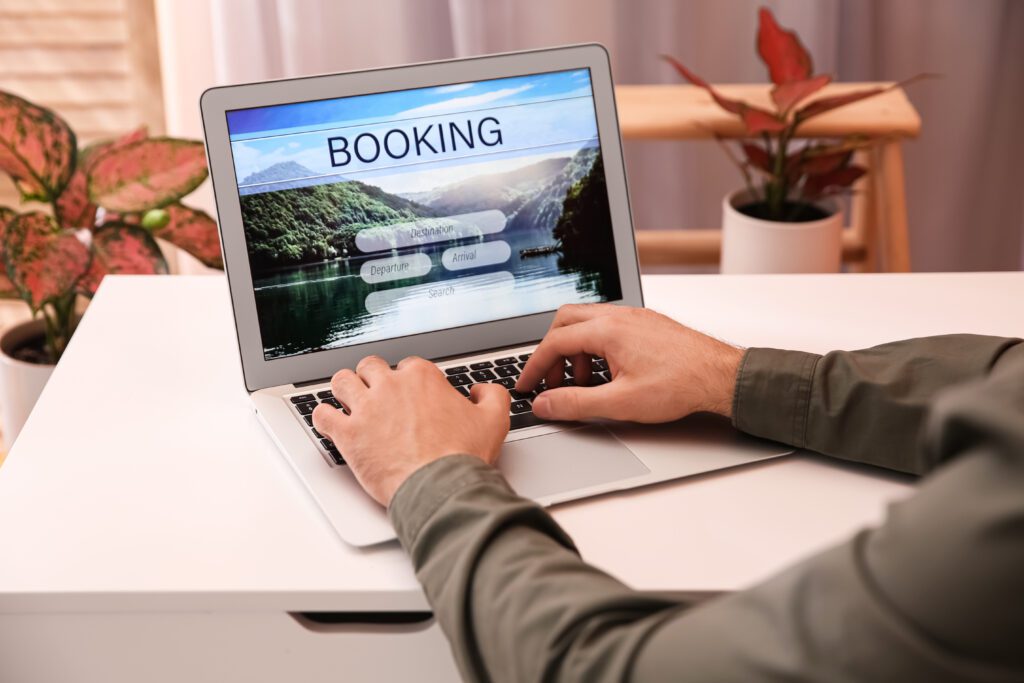That panic-inducing moment at immigration when they ask about your return plans – every digital nomad knows it well.
You’ve got no fixed schedule, no idea which country you’re hitting next, but the stern-faced officer wants proof you’re leaving their country eventually.
“Immigration officers worldwide have one job: making sure visitors don’t plan to stay illegally,” says travel expert Andy Halliday from Lexrope, a UK-based outdoor gear company. “But for digital nomads who live life on the move, buying return tickets they’ll never use is just throwing money away.”
Halliday has revealed the clever workaround that’s been saving remote workers serious cash while keeping everything above board with immigration authorities.
The Immigration Return Ticket Dilemma
Most countries require visitors to show proof of onward travel before allowing entry. This policy aims to prevent illegal immigration by ensuring tourists don’t plan to overstay their welcome.
“The system was designed for traditional tourism – fly in, see the sights, fly home two weeks later,” explains Halliday. “But digital nomads might stay for three months, then decide last-minute whether they’re heading to Thailand or Portugal next. Buying tickets for both just to satisfy immigration is costly madness.”
The £12 Solution Digital Nomads Swear By
Instead of purchasing expensive flight tickets they might never use, savvy digital nomads have discovered a legitimate alternative: verifiable flight reservations.
“Companies like onwardticket.com provide actual airline reservations that show up in the airline’s system for 24-48 hours,” Halliday reveals. “For $16 – roughly 12 British pounds – you get a genuine PNR (Passenger Name Record) number that immigration officers can verify if needed.”
These reservations automatically cancel themselves after the verification period, meaning travellers don’t need to remember to cancel them manually – and don’t need to pay the full fare.
How It Works
- Book a verifiable onward ticket from a reputable service shortly before your arrival (ideally 24-48 hours before).
- Receive a real booking confirmation with your name, flight details and a legitimate PNR number – exactly like a regular ticket.
- Present this confirmation if asked by immigration or airline staff during check-in or at border control.
- Continue your travels worry-free as the reservation automatically cancels itself after the verification period.
Why It’s Legal
This practice exists in a legitimate grey area that works because it satisfies the letter of immigration requirements.
“You’re not presenting fake documents – these are genuine reservations in the airline’s system,” Halliday points out. “Immigration rules typically require proof of ‘intent’ to leave, not a guarantee you’ll take that specific flight.”
The reservation demonstrates this intent while giving digital nomads the flexibility they need. As the booking is real at the moment of verification, it’s not considered fraudulent.
Avoiding Potential Risks
While this hack has worked for countless digital nomads, Halliday stresses the importance of using it properly:
“Not all services are created equal. We’ve seen plenty of scam websites promising onward tickets but delivering PDF mockups that won’t hold up to verification. Stick with established services that provide actual airline bookings with real PNR numbers.”
Halliday also warns travellers to be selective when using this method: “This approach makes sense for genuinely undecided travellers. If you already know your next destination, just book the actual ticket. And for high-scrutiny borders or visa applications, having a real ticket is still the safest bet.”
Andy Halliday, Head of Operations at Lexrope, commented: “If immigration officers get suspicious about your onward ticket, try to stay calm. Be ready with backup evidence like bank statements showing sufficient funds, accommodation bookings, and proof of remote work. These documents strengthen your case that you’re not planning to overstay.
“Always research country-specific requirements beforehand – Thailand, Indonesia, and the Philippines typically enforce strict checks, while some European countries are more relaxed within the Schengen Zone.
“Beyond just having a ticket, prepare your entire entry strategy. Have a clear story about your travel plans and keep your first few nights’ accommodation details readily available. Immigration officers want to see that you’ve thought your trip through and aren’t making things up on the spot. These simple preparations can make the difference between a smooth entry and an uncomfortable interrogation.”


